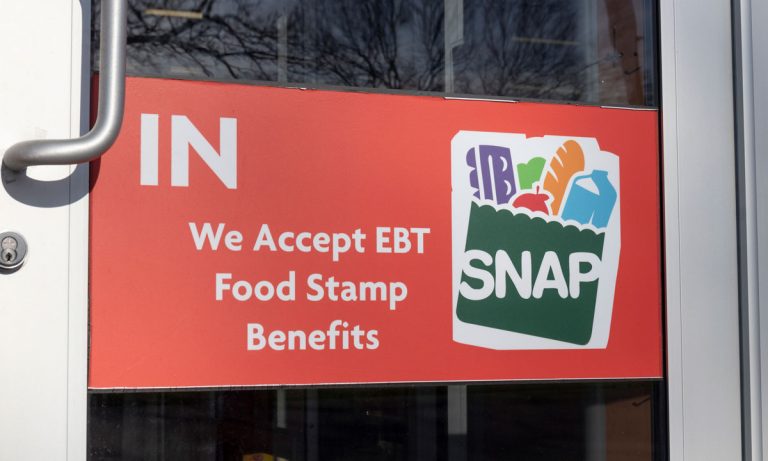How to Get Emergency Housing Assistance
Finding emergency housing can be challenging, but knowing where to look and who to contact can make a big difference. If you need immediate help, calling 211 can connect you with local shelters and resources. This simple call can put you in touch with crucial services for veterans, youth, and families facing homelessness.
You can also explore programs like the Emergency Housing Vouchers provided by HUD. These vouchers can assist individuals and families who are homeless or at risk of becoming homeless. Understanding your eligibility and how to apply can help secure the temporary housing you need.
For financial assistance with rent, check out the Emergency Rental Assistance Program by the U.S. Department of the Treasury. This program offers substantial support to help eligible renters maintain housing stability. Knowing these options not only helps you in a crisis but also ensures you have access to the right resources at the right time.
What Is Emergency Housing Assistance Program?
Emergency Housing Assistance Programs are designed to help people facing urgent housing needs. These programs provide temporary housing solutions, rental assistance, and support services to those in need.
Types of Emergency Housing
There are several types of emergency housing available. Shelters offer short-term, immediate housing to individuals and families. Transitional housing provides a longer-term solution, typically several months, to help people move towards stable, permanent housing.
Rental assistance programs, like the Emergency Housing Voucher (EHV), help pay rent and prevent eviction. Some programs also provide supportive housing for specific groups, such as veterans, domestic violence survivors, and individuals with disabilities.
Eligibility Criteria for Assistance
Eligibility for emergency housing assistance varies. Generally, you must show proof of housing instability or imminent risk of homelessness. For rental assistance programs like the Emergency Rental Assistance Program, you need to meet income requirements, usually below a certain percentage of the area median income.
Specific groups, such as veterans or those fleeing domestic violence, may have additional tailored programs available. You may also need to provide personal identification, proof of income, and other documentation to qualify.
Duration and Limitations of Assistance
The duration of assistance varies widely between programs. Emergency shelters typically offer short-term stays, lasting from a few days to a few weeks. Transitional housing may provide support for several months or even up to two years.
Rental assistance programs can cover several months of rent, often up to 15 months in total. Assistance may come with limitations, such as caps on the amount of rent covered or requirements to participate in supportive services. It’s important to check the specifics of each program to understand the exact terms and conditions.
Different Government Housing Assistance Programs
Emergency housing assistance can be obtained through various federal and state programs. Each program offers specific benefits to address different housing needs.
Federal Emergency Housing Programs
The Federal government provides several programs to help people find emergency housing. One major option is the Emergency Rental Assistance Program, which helps eligible households with financial issues due to COVID-19. This program was authorized by the American Rescue Plan Act of 2021 and offers help with rent, utilities, and other housing expenses.
Another important program is the Housing Choice Voucher Program (Section 8). This program assists very low-income families, the elderly, and the disabled with rental costs. Through this program, participants can choose any housing that meets program requirements and is not limited to units located in subsidized housing projects.
For veterans, the Department of Veterans Affairs offers special programs to help with housing. Veterans in need can reach out to resources like VA-backed loans and grants.
State and Local Assistance Options
Many state and local governments offer their own housing assistance programs. These programs often target specific groups, such as low-income families, the elderly, and those with disabilities. For example, you can find rental assistance or emergency housing by calling local 211 shelters.
Some states provide aid through programs like the Housing Assistance Grant Program, which assists with rent, mortgages, and utilities. Local government websites and offices often have detailed information on these programs and how to apply.
Community Action Agencies also play a big role in providing housing help at the local level. They offer support services like eviction prevention, utility assistance, and case management to help people maintain stable housing. It’s essential to check with local agencies to understand what specific assistance is available in your area.
Non-Governmental Programs
You can find emergency housing assistance through various non-governmental programs. These include charitable organizations, local shelters, and community-based support services that often fill gaps in government help.
Charitable Organizations and Shelters
Charitable organizations and local shelters offer immediate relief for those in urgent need of housing. Groups like the Salvation Army and the Red Cross provide temporary lodging and essential resources. They usually offer hot meals, clothing, and sometimes case management services.
Local shelters focus on providing a safe place to stay. Some shelters are open 24/7 and offer additional services like counseling and job placement programs. It’s important to contact them directly to understand what they offer.
Community-Based Support Services
Community-based support services help at the local level. These services are often coordinated by non-profits or community action agencies. They can assist with both temporary and long-term housing solutions.
These programs might help you find low-income housing, provide rental assistance, or offer legal help for eviction defense. Some also offer educational workshops on budgeting and financial planning to help you stay stable in the long term. Working closely with these organizations can provide the support you need to get back on your feet.
How to Apply for Emergency Housing
To apply for emergency housing, you need to gather specific documents and follow certain steps. This will help you get the assistance you need quickly and efficiently.
Documentation and Information Required
You will need to provide several pieces of information to apply. Start with proof of identity, such as a driver’s license or passport. You also need proof of income, like pay stubs or tax returns. Additionally, include any notices from your landlord about eviction or lease termination.
If you are experiencing homelessness or at risk, documentation from shelters or service providers can be important. Medical records or police reports may be required if you are fleeing domestic violence or other dangerous situations. Include Social Security numbers for everyone in your household. This information helps verify your eligibility and speeds up the process.
Steps to Apply for Housing Assistance
First, contact your local Public Housing Agency (PHA) or visit their website. Many agencies offer online applications. Fill out the application completely and accurately. Missing or incorrect information can delay your request.
You may be asked to provide additional documentation or attend an in-person interview. Be prompt in providing what is requested. Call the PHA to confirm they have received all required materials. After submitting your application, follow up regularly to check the status. For even faster assistance, call 211 to find local resources and shelters.
By staying organized and proactive, you can improve your chances of getting the emergency housing help you need.
Immediate Actions to Take in a Housing Crisis
When facing a housing crisis, the first steps should focus on securing temporary shelter and accessing essential services like food and healthcare. Quick action can help stabilize your situation and provide breathing room to explore longer-term solutions.
Finding Temporary Shelter
If you are in need of immediate temporary shelter, there are several options to consider. First, contact your local emergency rental assistance program for guidance. In many areas, dialing 211 can connect you to services that help locate local shelters.
Nonprofits and community organizations often have programs to help individuals and families find temporary housing. Additionally, the Emergency Rental Assistance Program has provided significant funding to support renters. Local Public Housing Authorities (PHAs) might offer emergency housing vouchers that can provide a more stable living situation.
Make sure to reach out to friends or family who might offer temporary housing. Many people find unexpected help by asking their social network for support.
Accessing Food and Healthcare Services
Once you have secured temporary shelter, prioritize basic needs like food and healthcare. Many local and state programs can help with these essential services. Food banks and pantries offer free food to those in need. The USAGov website has resources to help locate these services.
For healthcare, free clinics and community health centers can provide essential medical care. Many of these services are available regardless of your ability to pay. If you have children, school-based programs often provide free or reduced-cost meals.
Keep in mind that immediate action is crucial during a housing crisis. Combining help from government programs and community organizations can provide substantial support.
Long-Term Strategies for Stable Housing
To achieve stable housing, you need to focus on the transition from emergency to permanent housing and financial planning and budgeting support. By organizing and managing these aspects, you can ensure long-term housing stability.
Transitioning from Emergency to Permanent Housing
Moving from emergency shelter to long-term housing involves several steps. Initially, you will need to find suitable permanent housing options. Consider factors like location, affordability, and proximity to essential services such as schools, hospitals, and public transportation.
Contact local housing authorities or organizations for guidance. They can help you navigate programs and resources designed to assist you. For instance, the HUD Exchange provides tips on enhancing long-term housing stability, such as assigning responsibility for housing retention services.
Building a support network is crucial. This includes family, friends, and community resources that can offer emotional and practical help. Organizations like NAMI offer various housing options based on individual needs, which can aid in your transition.
Financial Planning and Budgeting Support
Financial planning is a key component of achieving stable housing. Start by assessing your current income and expenses. Create a budget that includes all necessary expenses such as rent, utilities, food, and transportation.
Seek financial counseling services if you’re unsure how to manage your budget. Many non-profit organizations offer these services at no cost. For example, the U.S. Department of the Treasury suggests using programs like the Emergency Rental Assistance as a tool not only for immediate relief but also for long-term housing stability.
Having a savings plan is essential. Aim to save a portion of your income each month, even if it’s a small amount. This can provide a financial cushion for unexpected expenses, helping maintain your housing in the long run.
Use financial tools and apps to track your spending and saving habits. These tools can provide insights into where you can cut costs and how to optimize your budget, ensuring your housing stability over time.
Legal Rights and Advocacy
Navigating legal rights and finding advocacy can make a huge difference in securing housing assistance. Understanding your rights and knowing how to seek legal help improves your chances of staying in your home.
Understanding Tenant Rights
Your rights as a tenant protect you from unfair treatment. Landlords must follow rules regarding rent increases, evictions, and maintenance. For instance, you have the right to a safe, habitable home. This means necessary repairs should be done promptly.
If facing eviction, you may be eligible for emergency rental assistance programs like those offered by the U.S. Department of the Treasury. These programs provide financial help to cover rent and prevent eviction.
Knowing your rights ensures you can stand up for yourself. Agencies like the Legal Aid Society offer comprehensive resources and support for tenants.
Seeking Legal Help and Representation
If you need legal assistance, there are many free resources available. Organizations like the Legal Aid Society offer help with housing issues. You can contact their neighborhood offices in Manhattan, Brooklyn, Bronx, and Queens for support.
Additionally, platforms like LawHelp.org provide links to legal aid information in each state. This includes fact sheets and self-advocacy tools.
For immediate help, consider calling Legal Services NYC’s hotline (917-661-4500) available Monday through Friday. Legal representation can significantly improve outcomes in housing disputes, protecting you from wrongful eviction and helping resolve conflicts with landlords.
Frequently Asked Questions
Emergency housing assistance programs provide crucial support to those facing homelessness, offering a variety of resources, from vouchers to cash assistance programs.
Where can I apply for an Emergency Housing Voucher?
You can apply for an Emergency Housing Voucher (EHV) through your local public housing agency (PHA). These vouchers are designed to help individuals or families who are either homeless or at risk of homelessness. More details can be found on the HUD website.
What steps are involved in securing immediate housing assistance for the homeless?
First, contact a local shelter or housing agency. They will assess your situation and guide you through an application. You might need to provide documentation of your homelessness status. Once approved, you will be matched with immediate housing options or temporary shelters.
How can one apply for emergency homeless assistance programs?
Start by visiting local shelters or social services offices. You can also apply online through state or city government websites. Many programs require proof of income and identification, so keep these documents ready. Applying early increases your chances of getting timely help.
What are the options for immediate cash assistance for individuals facing homelessness?
Government programs provide cash assistance for those facing homelessness. You can apply for Emergency Rental Assistance programs, which have been funded by initiatives like those outlined by the U.S. Department of the Treasury. These funds can be used for rent, utilities, and other housing-related expenses.
What should an individual do if they suddenly find themselves without a home?
If you suddenly find yourself without a home, seek help immediately. Contact local shelters or hotlines. Many cities have emergency services that provide overnight shelter, food, and basic medical care. It’s crucial to act quickly to ensure your safety and well-being.
How does one access emergency housing assistance in California?
In California, you can access emergency housing assistance by contacting county housing authorities or local nonprofits. Programs such as the Emergency Rental Assistance Program provide support with rent and utilities.





